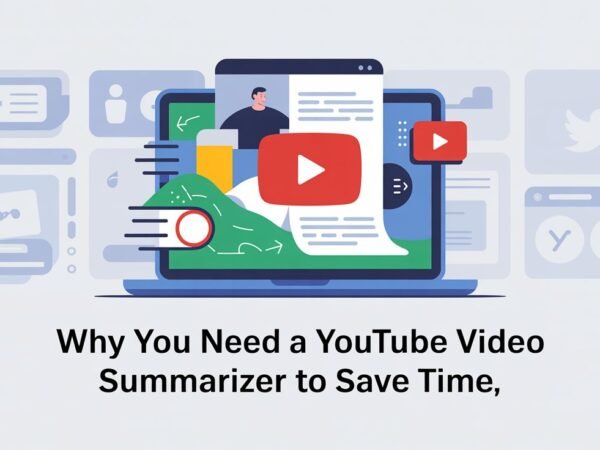Let’s get real about SEO. Not in the “we’ll rank you #1 tomorrow” way (unless tomorrow is the year 2030) but in the global, statistical, laugh-through-the-pain sort of way. I’m writing this from Columbia, South Carolina—where magnolias bloom, humidity sweats through your pores, and small businesses are finally catching up to big tech on something crucial: intelligent search engine optimization. We’re talking about SEO in Columbia, SC, that doesn’t rely on fads, fluff, or fake promises.
But first, let me take you on a short trip north. To Canada. To the land of maple syrup, Tim Hortons, and… Walmart’s $450 million SEO disaster.
What Happened to Walmart’s SEO in Canada? (And Why You Should Care in Columbia)
Walmart launched its Canadian eCommerce expansion in 2013 with big dreams—and a digital budget that would make even Jeff Bezos whistle. They had the funds, the workforce, and a reputation as a global retail titan. However, they made a critical mistake: they copied their U.S. website’s structure and content into Canada without optimizing it for regional SEO, language nuances (such as “bonjour” in Quebec!), or local product search behavior.
The result? Walmart.ca pages ranked poorly. Product listings disappeared from search results. Local shoppers searched for “toques” (a Canadian term for “beanies”), and Walmart showed them sun hats instead. By the time they realized it, they were causing traffic congestion. Amazon, Best Buy, and even smaller retailers outperformed them.
What does that mean for SEO in Columbia, SC? Everything.
Because if the world’s biggest brick-and-mortar store can mess up SEO by ignoring localization and structure, small and midsize businesses need to be even sharper—and savvier—with how their content is built and indexed. And that’s precisely where Web Design Columbia (WDC) thrives.
The Silent Killer: Technical SEO Neglect
Many people think SEO is all about keywords. You want to rank for “best-fried chicken in Columbia, SC,” or “affordable roof repair.” So you jam those keywords into your homepage, H1 tags, alt image text, and your dog’s name—and call it a day.
But here’s the hard truth: technical SEO is the silent force behind your search visibility. Google doesn’t just crawl your content—it audits your code, speed, security headers, and internal linking structure as if it were applying for TSA clearance.
In Walmart’s case, its site hierarchy was a mess. URLs were overly complex, slow to load, and inconsistent in schema markup. This led to crawling issues and search engines downgrading entire product categories. Not only did they fail to get clicks, but they were also unable to get seen.
Now, imagine what happens to local businesses in South Carolina that don’t even know what canonical tags are or why they shouldn’t use 20 plugins that all conflict with each other.
That’s why I always say that good SEO in Columbia, SC, starts with the bones of your website—and at WDC, we spend most of our time quietly sculpting those bones like digital chiropractors.
Global SEO Trends That Matter in the South
Let’s zoom out for a moment.
In 2024, over 63% of global online traffic came from mobile devices. Yet, as of this year, more than half of small business websites in the U.S. fail Google’s mobile usability tests. Even worse? Columbia is no exception. We’ve had clients with gorgeous desktop layouts that turn into digital Picasso paintings on phones—beautiful chaos that’s completely unindexable by Googlebot.
Then there’s Core Web Vitals—Google’s beloved performance metrics. As of early 2025, only 38% of websites pass these tests consistently, according to Google’s own Chrome User Experience Report. Sites are bloated with JavaScript, unoptimized images, and slow server responses. Many business owners don’t even know their site is failing until they see a traffic dip so steep it triggers vertigo.
At WDC, we regularly audit and rebuild websites that were developed by other companies using generic templates. Some of them looked decent, but under the hood, they were a performance disaster. This is where we come in, rolling up our sleeves with Lighthouse reports and browser tools, optimizing lazy loads, caching logic, and, yes, cleaning up decade-old meta tags that say “Welcome to My Site.”
SEO in Columbia, SC, isn’t about tricking Google anymore—it’s about giving Google what it likes. And sometimes, that means starting over with a clean, well-coded slate.
Structured Data and Schema: Why Google Needs Clarity, Not Guesswork
When Walmart failed to localize its Canadian site, it also missed out on something even more devastating: structured data. They didn’t tag their products correctly, didn’t label categories in a way Google’s AI systems could parse easily, and skipped schema markup altogether.
In simple terms? They left Google guessing.
Now, imagine you’re a local bakery in Columbia trying to rank for “gluten-free muffins.” Suppose your product page isn’t marked up with schema (telling Google exactly what’s for sale, price, availability, and nutritional data). In that case, you’re invisible to the new generation of AI-powered search features—like rich results, featured snippets, and the evolving Search Generative Experience (SGE).
Web Design Columbia knows that schema isn’t some magical add-on—it’s essential architecture. We’ve seen even simple JSON-LD tags boost impressions in Google Discover by 40–70% in some cases. Yet so many agencies in South Carolina still skip it because they think it’s “too technical.”
SEO in Columbia, SC, is a technical field. And if you don’t get that part right, your pretty pictures and catchy headers won’t mean much to the crawlers ruling your rankings.
When AI-Generated Content Becomes the Problem, Not the Solution
Here’s something spicy: In 2024, nearly 50% of all newly published content on the web was generated or enhanced by AI tools, according to SEMrush’s global report. Everyone and their grandma started using ChatGPT, Jasper, and other AI writers to churn out content like cookie dough.
But Google’s getting wise. Their March 2024 spam update targeted AI-generated fluff, doorway pages, and websites that merely spew out text without genuine value. We’ve already seen dozens of businesses in Columbia plummet in rankings after AI tools created “5 Tips for Great Plumbing” pages on every city name in South Carolina.
At WDC, we use AI—but only when it’s smart to do so. Real strategy still requires human input. You need context, nuance, and, yes, humor. Otherwise, your blog posts read like a blender full of Wikipedia pages—and Google hates blenders.
I once had a local business owner ask me why their blog traffic dropped after publishing 200 AI-generated posts in a weekend. I told them, “Because Google doesn’t reward desperation. It rewards relevance.” They laughed nervously. I didn’t.
So when we talk about SEO in Columbia, SC, let’s be honest—it’s not just about volume. It’s about clarity, structure, originality, and understanding when to let humans do the heavy lifting.
Why Walmart’s Failures Can Be Columbia’s Blueprint
A $450 million failure would be career-ending. However, Walmart eventually rebounded after years of correcting its mistakes. They brought on SEO strategists, rebuilt their entire product structure, and localized their content. It was expensive. It was messy. But it taught everyone a valuable lesson: no company is immune to bad SEO.
For local businesses in Columbia and across South Carolina, that means the bar isn’t as high as you think. You don’t need a global team—you need a smart, lean, affordable one. That’s precisely what Web Design Columbia has been for nearly two decades.
We’re not chasing trends. We’re building durable strategies. And while the digital landscape continues to shift beneath our feet, our core belief remains the same: good SEO is about respect—respect for your audience, your technology, and your message.
The Psychology of Search: Why People Click (And Why They Don’t)
Let’s take a moment to step inside the heads of search users in 2025. You know, the ones typing “best wedding photographer Columbia SC” or “24-hour locksmith near me” at 3:17 a.m. during a minor life crisis.
Search behavior today is influenced more by emotions and expectations than ever before. Google’s own UX research confirms that click-through rates have little to do with the first position and everything to do with perceived trust, visual cues, and clarity of intent. That means the structure of your snippet—how your title reads, whether you include breadcrumbs, review stars, or product availability—can make or break that conversion.
And here’s the kicker: SEO in Columbia, SC, often misses this entirely. I’ve seen countless websites rank high for local queries, only to be overlooked because their meta descriptions were written in the style of 2011 Craigslist ads. (“Call us NOW for the BEST DEALS!!!!!”…you know the type.)
WDC approaches it differently. We write for the user who doesn’t yet trust you but might if you sound helpful instead of sales. That shift in tone? It changes everything. Whether your audience is a tired parent or a startup founder, people click on what feels authentic, not what screams the loudest.
The Local Angle: Hyper-Specific SEO Isn’t Optional Anymore
Here’s where Columbia comes into play.
Google’s location-based algorithm refinements in 2024 made local SEO more challenging—but also more effective. The search engine now considers proximity, review velocity, NAP (Name, Address, Phone) consistency, and even local news relevance when determining rankings.
If your business isn’t tied to Columbia by more than just a ZIP code, Google won’t consider you the best answer for Columbia queries. This means firms using cookie-cutter SEO services that don’t understand our city are losing ground fast.
Web Design Columbia doesn’t just optimize for “Columbia.” We dig into neighborhood-level nuances—from Devine Street to the Congaree Vista. We optimize with references to actual local landmarks, events, and colloquial language because we know that Google’s algorithm rewards location authenticity. And, more importantly, so do people.
It’s SEO with a Southern drawl—and a structured data backbone.
Downsides of the DIY SEO Boom
Now, let’s address the rise of do-it-yourself SEO tools. We’ve seen platforms like Wix, Squarespace, and Shopify roll out increasingly “smart” SEO features. From automated meta generation to built-in keyword tools, they promise a one-click solution for visibility.
And for some users, especially those just getting started? They help.
However, for most businesses trying to rank in competitive spaces, such as “personal injury lawyer Columbia SC” or “Columbia SEO company,” these tools often fall short. Why? Because they automate the generic and ignore the strategic. You get titles like “Home | My Site” and descriptions like “Welcome to our website. We’re glad you’re here.”
Even worse, these platforms often generate bloated code, rely heavily on JavaScript rendering (which Google still struggles with), and make it challenging to implement advanced SEO features, such as canonicalization, hreflang, or structured data tweaks.
At WDC, we’ve helped dozens of South Carolina businesses transition away from template builders once their SEO reached a plateau. We’re not against innovative tools—but we believe smart people should be using them intentionally, not unthinkingly.
SEO in Columbia, SC, deserves better than boilerplate.
The Economics: SEO Isn’t Expensive—Bad SEO Is
I’ve had business owners approach me with horror stories. They paid $5,000 to a so-called national SEO firm, only to get monthly reports filled with nonsense, zero strategy meetings, and a blog post every other week that a bored intern or a half-asleep AI could’ve written.
The result? No change in rankings. There is no increase in leads. And now, no budget left.
Good SEO in Columbia, SC, doesn’t have to cost a fortune—but it does require a partner who knows what they’re doing. That’s why Web Design Columbia offers affordable, high-impact SEO strategies designed for small and medium businesses. We’ve been doing this for almost two decades, and we’ve seen every scam, shortcut, and snake oil tactic there is.
What we offer instead is transparency, long-term results, and the flexibility to scale. If your site doesn’t need 1,000 backlinks, we won’t sell you 1,000 backlinks. If you need one killer landing page and some solid local citations, we’ll do just that.
Because cookie-cutter doesn’t cut it anymore, and you shouldn’t pay for it like it does.
The Tools That Work (And the Ones That Don’t)
Ah, SEO tools. They’re like gym memberships—everyone signs up, but few know how to use them properly.
At WDC, we use SEMRush, Ahrefs, and Labrika for competitive insights, backlink audits, and keyword tracking. We utilize Google Search Console and StatusCake to monitor our site’s health and uptime. And yes, we still write and test our schema manually because that’s the only way to guarantee it validates properly.
But do you know what tools we’ve stopped using? The ones that promise to “generate a 10,000-word SEO-optimized blog post with backlinks” for $7. These tools flood your site with unreadable content, trigger Google’s spam filters, and destroy any trust signals you’ve built.
If your SEO software sounds like a Ponzi scheme in a hoodie, it probably is.
Instead, we build human-centered systems. Actual strategies. Real feedback loops. And it works. One of our Columbia-based clients experienced a 232% increase in qualified traffic after we reduced their old blog content by 80% and focused on creating high-intent landing pages built with structured storytelling and optimized metadata.
Why Columbia Needs SEO, That Thinks Like a Global Brand (But Acts Local)
Big brands get a lot wrong. Walmart taught us that even $450 million can’t fix a broken SEO foundation.
However, small businesses also get a lot right, especially when they think beyond their ZIP code. Here in Columbia, we’re surrounded by scrappy entrepreneurs, passionate creators, and legacy businesses trying to stay relevant online. The only missing piece is strategy.
That’s where we come in. At Web Design Columbia, we’ve made it our mission to take everything we’ve learned from global SEO failures and wins and apply it to Columbia’s local businesses. We don’t overpromise. We don’t cut corners. We build systems that survive algorithm updates, fads, and fancy jargon.
If you’re reading this and thinking, “This sounds like the kind of SEO I want,”—good. Because we’re more like this.
Check out our SEO services by Web Design Columbia, and let’s make your digital presence something you’re proud of, not something you apologize for.
Because here in South Carolina, we know that good work speaks for itself. But it helps a lot when Google says it, too.
Do Read: How to Optimize Your Noise Cancelling Headphones for Maximum Effect













